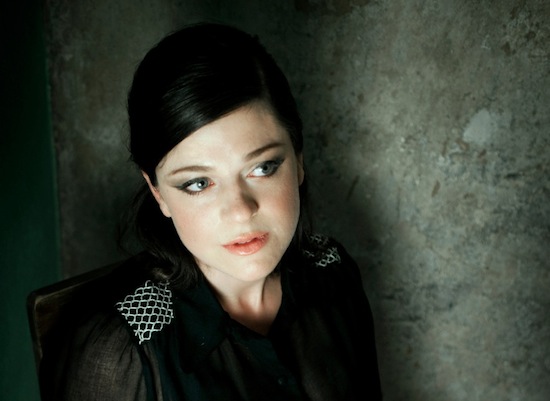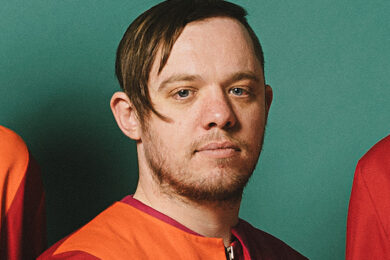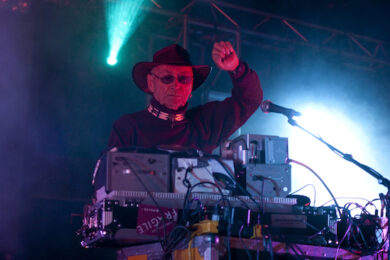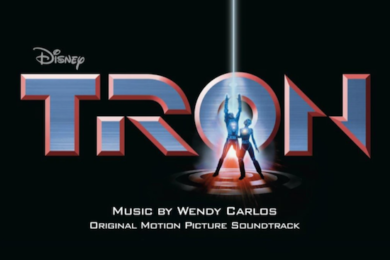Photograph courtesy of Alisa Presnik
These days, the former Tempelhof Airport is a symbol of an enlightened city: the nearly thousand acres which made up its grounds are now Berlin’s biggest park, its vast, grassy flatlands populated by picnickers and tourists, its one-time runway filled with kite surfers, roller-skaters and cyclists. There are plans for residential development, of course, but for the moment these are restricted to its fringes, and the place is so established in the city’s consciousness that any attempts to pave it over will doubtless be fiercely fought. Tempelhof is seeped in history, too. In 1909, Orville Wright flew above its meadows – which, in medieval times, belonged to the Knights Templar – setting a new world record as he flew 160 metres overhead. The airport’s huge terminal building – once the biggest in the world, at over 1,200 metres long – was, moreover, built as the gateway to Germania, a vital element in Albert Speer’s grand plan for the Nazi reconstruction of Berlin. The land was also the location for Berlin’s only concentration camp, and the take-off site for bombers airlifting supplies into West Berlin during the post-war Soviet blockade. It’s a location, in other words, in which both past and future collide, at once extravagant, harrowing and emancipated.
Tempelhof is therefore the perfect place to meet Gemma Ray. For the past few months, she’s been collaborating with Ralf Goldkind, a renowned German producer, on the first floor of the eastern wing of its terminal building. His studio looks out across a grassy lawn towards another historical landmark, the 800-capacity venue (where she’ll play in early October) that was once a cinema for American troops back when the city was divided. Down the corridor is Candybomber Studio, where she recorded her 2013 "fantasy soundtrack" album, Down Baby Down, and mixed her latest record. Soon, she hopes, she’ll have her own space in the building, but right now she’s come in early to discuss the immediate future: the release of Milk For Your Motors, her sixth album. Inevitably, it involves talking about the past.
Milk For Your Motors is Ray’s most confident statement yet, a conflation – like Richard Hawley’s, or Rufus Wainwright’s, though her releases sound little like either – of retro-leaning influences and an urge to create something contemporary, even timeless. Similarly, while her work bears little relation to The Smiths, it nonetheless displays a talent comparable with Morrissey and Marr’s for referencing what came before them – musically and lyrically – while seeking to create something innovative and indispensable. Its guests may be veteran – Suicide’s Alan Vega; Giant Sand’s Howe Gelb; Toby Dammit, who’s collaborated with, among many others, Iggy Pop and Michael Gira – but its outlook is fresh. Songs like the sultry ‘Shake Baby Shake’, the breezy ‘Buckle Up’, the grandiose ‘Rubbing Out Your Name’, the disconcerting ‘Waving At Mirrors’ and the semi-tropicalia of the brilliantly-titled ‘The Right Thing Did Me Wrong’ tip their Panama hats to an exotic yesterday of glamorous cocktails and long, sinister shadows, but there’s nothing dated about them at all. Like the clothes in which she appears on this sunny Berlin morning, they’re constructed from familiar, vintage material, but they’ve been given a new life and context.
Ray’s music, nonetheless, seems to confuse people. Perhaps it’s the twang of her Harmony Rocket guitar, a sound whose deep cultural associations mean that, however it’s employed, the same tired, superficial comparisons are repeatedly bandied about: a shopping list of David Lynch, Duane Eddy, Ennio Morricone, Roy Orbison and Quentin Tarantino references.
"I’ve never done a gig where people don’t come up to me and say, ‘Have you ever thought of sending your songs to Quentin Tarantino?’" she chuckles. "Obviously the guy picks really great sounds for his films, so it’s a compliment, but it does get a bit boring. Or David Lynch: the first record, I was like, ‘Oh, really?’ I think of him more for the synth-y drones. I think people’s first impressions, they’re just grasping for something. My stuff, I imagine it’s hard to describe. Not that it’s completely wacky, crazy, off the wall. But you know what I mean: it draws different things together. Bending a tone, maybe that’s something that jumps out at people. To be fair, there’s a reason why people keep picking it out. It’s one of those weird sounds that a lot of people react to, I suppose."
Ray’s backward-looking tendencies aren’t restricted to her fondness for the sound that Lee Hazlewood first coaxed out of the lower strings of Duane Eddy’s guitar. There’s a great deal of nostalgia at the heart of what she does, and it’s also visible in the manner in which she presents herself – clothes that are, to the modern generation, most familiar to viewers of Mad Men – as well as her record sleeves, which have a pulp fiction-meets-exotica style reflected by the video to recent single, ‘Shake Baby Shake’. Nonetheless, she insists, she has no grand plan simply to create facsimiles of a bygone era.
"I tend to like the sound palette from things," she explains. "I’m certainly no record collector. I’m not some kind of person, ‘I want that tone from that song’. It’s just, from quite a young age, the things I was drawn to happened to be of that certain physicality and intrigue, you know: reverb. It doesn’t have to be about going for some retro sound. It’s just a very mysterious, deep, curious, interesting sound. When people get on the retro thing, it’s pretty lazy, because my songs are quite modern, and my approach to music is quite modern. Yeah, I like using certain equipment when I have the chance, but I don’t have any aesthetic I’m trying to follow."
"I just like old, used things," she elaborates. "When I go shopping, I never really find stuff: it finds me. In Britain, I’d walk past a charity store and whatever I’d need would be in there, whether it was a practical thing or a dress. I’m like that with guitars. I can get cheap guitars, or free guitars, here and there, and without sounding ungrateful, I got sent a guitar and it just had no character. It’s a sound thing, massively. But it’s now how I live my life: I like finding stuff. My main guitar, someone who became a great friend [producer Matt Verta-Ray, of Heavy Trash and Speedball Baby] gave it to me when I was in New York recording with him. He’s such a generous person. He just had this feeling: ‘I think you should have it’. I fell into that as well when I was recording my first record. The guy who was producing it with me just said, ‘Oh, use my brother’s guitar’, and I was like, ‘This is what I’ve been waiting for for the last ten years of fucking around with all these different Fenders and not quite feeling it. This is it!’ And I think that element of nostalgia comes into how I make my music as well. I’m just more drawn to things that have had a different life, and you take them out of their context and put them somewhere new."
In her early days – in the mid- to late-noughties – critics were quick to suggest that Ray was part of a wave of big-voiced, old school performers who were scoring commercial success with their traditional R&B-inflected pop hits. Though she admits that her music owes a certain debt to soul, she prefers to see it as a quality rather than an influence. "In terms of the true sense of the word, it’s the ultimate thing," she nods. She’s dismissive, however, of "this modern version that’s gymnastics", as she calls it, and bristles when reminded of a quote from Q magazine that defined her as "Norah Jones on Amy Winehouse’s drugs", two singers with whom she shares little, except for a respect for the music that’s preceded them.
"Yeah, that’s one of those quotes that everyone nicks because they think it’s funny," she groans, understandably. "Fair enough, but it’s lazy as well. No disrespect to either of them: I really don’t have anything in common with their journey of how they came about being musicians, and that quote isn’t so obviously sexist. But it just blows my mind that, album after album, certain things are mentioned. And I thought maybe this would be the record where they stop doing this fucking shit: ‘So what’s it like to be in this new trend of female singer songwriters like Adele and Duffy and Amy Winehouse?’ It’s like, ‘For fuck’s sake: it’s just not my planet!’ And then this record, someone started a review by saying, ‘Well, she’s not like Duffy or Amy Winehouse or Adele on this record’. So it’s just like, ‘Why did you have to point out that I’m not?’ It’s absolutely unbelievable. No one would do a Nick Cave review and compare him to Nick Drake pointlessly. Maybe some people just see a singer; some people just listen to the voice. They’re not listening to the song, the songcraft or the production, the guitar playing, stuff like that. They’re not really looking at those other elements, whereas for me it’s just holistic."
She sighs, and takes a big swig of tea, before continuing, aware that she’s addressed the topic in a little more depth, and with a little more passion, than perhaps she intended.
"The only reason I mentioned this," she laughs, "was because it was literally like yesterday this review come through. I know I sound wound up, but that was actually funny: ‘Oh, she doesn’t sound like that!’ I just thought , ‘No, this has gone on too long now!’"
Still, Ray has plenty of things to be happy about. Asked about the guests on her record, she continues at the same quick-fire pace, her sentences sometimes getting away from her before she can finish them, her mind leaping from one idea to the next with infectious, friendly enthusiasm. She begins to talk of Howe Gelb, whose spoken vocals can be heard – buried in feedback, and then battered by clanging, stainless steel chords – on opening track, ‘The Wheel’.
"I love Giant Sand, and I met him in Berlin fairly recently," she says. "I really wanted a deep-voiced guy who’s just going to have this luxurious quality, and I thought, ‘Who better?’ And he’s such a great lyricist. He wrote his own lyrics for that. I was pretty moved. He nailed it. He’s a bit of a genius. I love that attitude: ‘Do it now! Fuck all the other shit!’ He’s just one of those magical people. This album seemed to have loads of little gaps, like the one that Alan Vega sang on. I wrote it, and then my bass player hit the drum machine button and I thought, ‘Oh, yeah, Suicide: that’s a good way to go’. I had the idea of having a girl at the end doing a spoken narrative, and then I thought, ‘I could completely flip it around, and instead of it being this young, helpless, teenage Shangri-Las girl breathlessly narrating, why not get Alan Vega?’ It’s a hats-off to him anyway.
"That was amazing, that he agreed to do it," she goes on, visibly thrilled at the recollection. "It was thundering and pissing down with rain, and they had to wheel everything up to the street because his current health didn’t allow him to go down the stairs to the basement. That’s why it’s extra touching, other than him doing it: the amount of effort that went into it all. And then as soon as he started singing, it’s like crowds everywhere. A few people said, ‘It’s like the last punk rock gig in Manhattan’. He’s on the street going, ‘Arrgggh!’ He was just screaming at full pelt on Ludlow Street! Try and imagine that happening. It was just like a ten-minute burst of energy, and then there’s the thunder and the rain, and then it all got high drama. It really was just a dream. I can’t talk to people about all this career bullshit, but when you genuinely get to meet musicians that you admire in these natural ways, it’s just really inspiring. It’s serendipity."
Further good fortune came in the shape of the Deutsches Filmorchester Babelsberg, who perform on several tracks on Milk For Your Motors. Ray was initially introduced to them in 2012 after she was invited to record a session for Berlin’s prominent Radio Eins’ fifteenth birthday. A series of public concerts followed, with Fiona Brice [Placebo, Midlake, John Grant] providing the string arrangements, and the admiration of the orchestra’s director helped ensure that they were all reunited for the new album.
"I couldn’t believe it when I got the e-mail," Ray gasps of the original invitation and performance. "I thought it was a joke! I felt like Shirley Bassey singing the James Bond theme!"
In fact, even the very fact that Ray – who grew up in Billericay – lives in Berlin came about by chance.
"I was living in London before for ages," she says, "and I love London, but it just stopped loving me for a while. You know when you just feel a bit knackered from somewhere and you’re not utilising it. I was on tour, so the rent was obviously expensive, so I was thinking of living somewhere else, but didn’t really have the time to put the energy in. And then an old friend of Andy’s [Zammit, her boyfriend, drummer, and the boss of Bronzerat Records, her label], came to a show I done in New York – hadn’t seen him since the old punk rock days – and he was like, ‘Do you know anyone I can sublet my flat to in Berlin?’ We were just like, ‘Well, yeah’. It was really, really lucky. It wasn’t like, ‘I’ll be the next Iggy Pop or something like that’.
"I’m not just here because it’s cheap, either," she adds hurriedly. "Hopefully I’m adding a positiveness to it. I hope I’m not just another British person clogging it up. I just think that sometimes I’ve had these things where I follow my instinct a lot, and Andy does too, and we meet these amazing people sometimes who gives us great opportunities or make things possible. I don’t know if it’s just me, but strange things happen here."
In a few minutes, Ray will be joined by Goldkind so they can continue working together on their undefined collaboration. As we finish our tea, she explains how they met when she was mixing the new album down the hall at Candybomber, and how he’d spontaneously suggested trying out a few ideas together.
"I’m not sure exactly what it is," she puzzles. "It’s really interesting, a completely different thing. Christoph Hahn [of Swans] has been coming down and doing like the most loud, real slabs of lap steel. And there’s all this massively out-of-my-comfort-zone electronic stuff. I’m not sure if it’s a band, or it’s just something we’re enjoying, or whether it’ll be a Gemma Ray album. Who knows? This just wouldn’t happen in London. You don’t get people with their own studios just going to someone, ‘Hey, come on: let’s do some stuff and see what happens’. People are trying to pay their rent, whatever level they are at in their life.
"I live ten minutes cycle ride away," she concludes. "This is my favourite building in Berlin. On the planet! This huge, brilliantly imposing building that blows me away every day. It’s crazy, isn’t it? I can’t believe this daily routine! For me, it’s a dream. Making a picnic, or a flask of coffee, and cycling either to this studio to work on the project I’ve been doing here, or cycling to my studio in Mitte [in central East Berlin], both of them within ten minutes, making music when there’s not other crap to do: that’s what I’ve been spending months doing, day in and day out. It’s like a magnet keeps drawing me to this building. It’s the first thing I fell in love with when we first drove to Berlin. I was like, ‘What is that place, you know?’ I love coming here!"
A week or so later, Ray celebrates the release of Milk For Your Motors in the kind of considered environment that confirms she’s not interested in being yet another Berlin hipster. Dodo Beach, an impressive store specialising only in vinyl, lies on a quiet residential street in Schöneberg, only a few minutes walk from where, famously, David Bowie and Iggy Pop once lived. It’s an area that has remained largely untouched by the massive influx of 20-somethings that, over the past five years, have been drawn to Berlin by exaggerated, ill-informed features in The New York Times and The Guardian every second week. Fans of varying ages squeeze between the racks to listen respectfully as Ray performs a short set that culminates in her scraping the strings of her guitars menacingly with a carving knife. However happy Ray may be, if you close your eyes, you could be drowning your sorrows in a grimy dive bar, transfixed by the voice of a lonely soul drifting from an empty stage: extravagant, harrowing and emancipated, like an Essex-born Patsy Cline. It’s the sound of the past, and the sound of now, and, with luck, the sound of the future.
Milk For Your Motors is out now on Bronzerat Records, and head to Gemma Ray’s website for details of her upcoming shows








